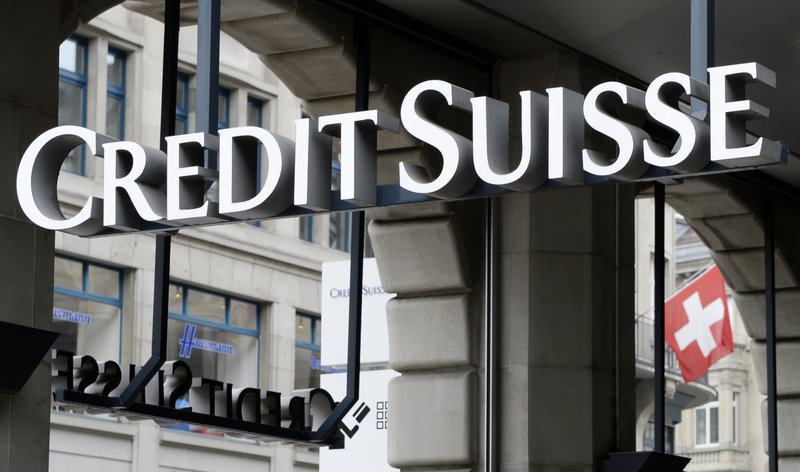FRANKFURT, Germany -- European banks Deutsche Bank and Credit Suisse agreed Friday to pay a combined $12.5 billion to resolve U.S. investigations into sales of the toxic debt that fueled the 2008 financial crisis.
Deutsche Bank, Germany's biggest, agreed to pay $7.2 billion -- $3.1 billion in fines and $4.1 billion in consumer relief -- in a tentative settlement with the U.S. Justice Department over dealings in mortgage-backed bonds. That relief could include easier terms on loan repayments for homeowners and borrowers.
Neither Deutsche nor Credit Suisse, which agreed to a similar settlement under which it would pay $5.3 billion, including $2.8 billion in consumer relief, provided details on what the consumer compensation would entail.
Previous settlements related to mortgage-backed securities have meant banks reduced loan amounts and interest for some borrowers, and donated money to community development groups, all under the supervision of appointed monitors who track compliance.
However, housing advocates have complained that banks have claimed credit toward the settlement amounts for activities they would have undertaken anyway.
The settlements, which focus on activities from 2005-07, revisit an ugly chapter of the global financial crisis, in which banks bundled mortgages from people with shaky credit into bonds whose risks many investors did not understand. When the mortgages went into default as the U.S. real estate market collapsed, so did the bonds, spreading losses and panic through the financial system.
The Deutsche Bank agreement lessens the financial cloud over the bank's stock, since it had earlier this year said it might have to pay as much as $14 billion. The bank has been struggling to put expensive litigation from past misconduct behind it. It said it would take a $1.17 billion hit to its fourth-quarter earnings arising from the civil penalty. Chief Executive Officer John Cryan is putting the bank through a restructuring in an attempt to improve profitability and strengthen its finances.
News of the settlements came after the Justice Department sued Britain's Barclays Bank on Thursday, accusing it and its employees of misrepresenting the quality of the loans they sold to tens of thousands of investors. The investors, which included credit unions, pension plans and university endowments, lost billions of dollars, the Justice Department said.
The settlement costs will probably lead Deutsche Bank and Credit Suisse to second-straight annual losses and prompt continued questions over whether the German lender will raise capital through a stock sale.
President Barack Obama's administration is pressing to wrap up investigations of Wall Street firms for creating and selling the subprime mortgage bonds that fueled the 2008 financial crisis. Before the two deals on Friday, authorities had already extracted more than $46 billion from six U.S. financial institutions over their dealings in mortgage-backed securities.
"For Deutsche, it was certainly quite positive" because the hit to capital is "modest," said Kyle Kloc, a portfolio manager at Fisch Asset Management in Zurich who holds Deutsche Bank bonds. "With Credit Suisse it is more complicated. Yes, it reduces uncertainty but it is toward the high end of what people expected."
The Justice Department declined to comment.
Deutsche Bank's settlement "might help in the short run because a major source of uncertainty has been cleared," said Michael Huenseler, an investor at Assenagon Asset Management, which holds about 0.8 percent of Deutsche Bank's shares. "But it's still higher than many have expected and it will pose a long-term drag on profitability."
The deal with Deutsche Bank is far below the Justice Department's initial request of $14 billion, which had spooked stock and bond holders earlier this year. Bank of America Corp., which had the largest such settlement, agreed to pay $16.7 billion over bonds that were worth four times those of Deutsche Bank.
Deutsche Bank, in a memo to employees, said it doesn't expect the settlement to affect its credit rating or its ability to operate in the U.S., and it expects to pay interest on all its debt in full and on time.
Unlike Credit Suisse and Deutsche Bank, Barclays couldn't reach an agreement, marking the first time the Justice Department has sued one of the banks at the center of an Obama administration initiative to recoup investor losses on mortgage securities. The lawsuit is rare for big banks, which typically settle with the government rather than risk drawn-out litigation and a possible trial.
The breakdown in talks suggests that Barclays is willing to take its chances with incoming enforcement officials in the Donald Trump administration. The bank has lined up a law firm whose top lawyer is known for his aggressive defense of clients.
"Barclays bought Lehman in the middle of the crisis, and I'm just wondering if the issues the [Justice Department] is dealing with are Lehman issues," Chris Wheeler, an analyst at Atlantic Equities, told Bloomberg Television, referring to the global financial services firm Lehman Brothers. "Maybe Barclays is saying, 'Hang on a minute. We didn't actually manage the bank until we acquired it in 2009.'"
Information for this article was contributed by David McHugh and Jamey Keaten of The Associated Press, and by Jan-Henrik Forster, Jeffrey Vogeli, Steven Arons, Alastair Marsh, Katie Linsell, Richard Partington and Ambereen Choudhury of Bloomberg News.
A Section on 12/24/2016
